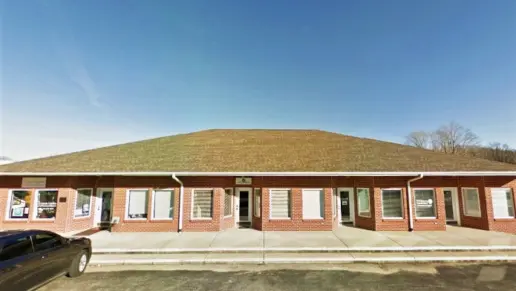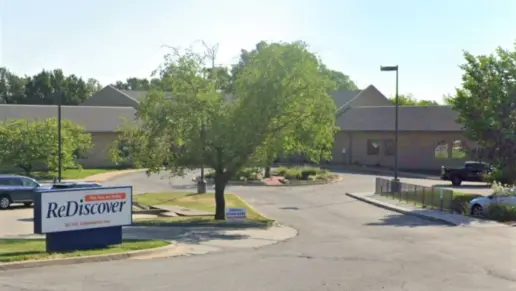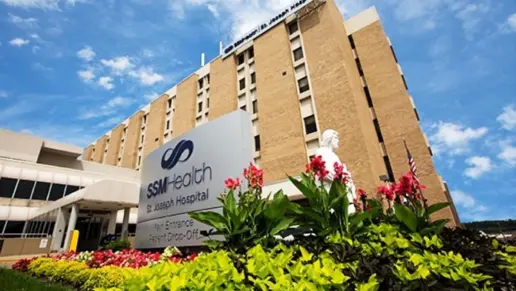I didn't like The Farm even a little bit because everyone knows that patience is very important to treat someone with a condition like mine and patience is exactly what they lack of, it seemed like if they wanted to hurry the process as much as possible no matter how the pat ...
About Preferred Family Healthcare – Bridgeway Behavioral Health – The Farm
Preferred Family Healthcare – Bridgeway Behavioral Health – The Farm, located in Winfield, Missouri is a non-profit alcohol and drug rehab that offers treatment for a variety of substance abuse addictions including alcoholism, co-occurring mental health disorders, and opiate addiction. They offer supervised medical treatment to safely manage withdrawal symptoms during detoxification, residential care providing long term support for addiction recovery, as well as flexible outpatient addiction therapy allowing patients to live at home while receiving regular treatment. Additional levels of care offered include intensive outpatient, relapse prevention, and 12-step therapy.
Specialty rehab programs at Preferred Family Healthcare – Bridgeway Behavioral Health – The Farm include tailored care focusing on women’s specific needs and experiences and gender-specific addiction treatment addressing unique challenges faced by men.
For recreation, patients can unwind in the rec room after a lengthy day of therapy, foster creativity and jam with other patients in the music room, or connect with nature and improve fitness with nearby hiking trails.
Preferred Family Healthcare – Bridgeway Behavioral Health – The Farm has received accreditations from CARF.
Rehab Score
Accepted Insurance










Other Forms of Payment
Medicaid is a state based program that helps lower-income individuals and families pay for healthcare. Medicaid covers addiction treatment so those enrolled can use their coverage to pay for rehab. When a program accepts Medicaid the client often pays very little or nothing out of their own pocket.
Private insurance refers to any kind of healthcare coverage that isn't from the state or federal government. This includes individual and family plans offered by an employer or purchased from the Insurance Marketplace. Every plan will have different requirements and out of pocket costs so be sure to get the full details before you start treatment.
Self-pay involves paying for treatment out of your own pocket. You can use savings or credit, get a personal loan, or receive help from family and friends to fund your treatment. If you don't have insurance or your insurance plan doesn't cover a specific program, self-pay can help ensure you still get the care you need.
Financial aid can take many forms. Centers may have grants or scholarships available to clients who meet eligibility requirements. Programs that receive SAMHSA grants may have financial aid available for those who need treatment as well. Grants and scholarships can help you pai for treatment without having to repay.
Sliding scale payments are based on a client's income and family size. The goal is to make treatment affordable to everyone. By taking these factors into account, addiction recovery care providers help ensure that your treatment does not become a financial burden to you or your family, eliminating one barrier to care.
Addiction Treatments
Levels of Care
Treatments
The goal of treatment for alcoholism is abstinence. Those with poor social support, poor motivation, or psychiatric disorders tend to relapse within a few years of treatment. For these people, success is measured by longer periods of abstinence, reduced use of alcohol, better health, and improved social functioning. Recovery and Maintenance are usually based on 12 step programs and AA meetings.
Drug rehab in Missouri usually involves several phases: detox, rehab, and aftercare. The rehab phase may include a combination of inpatient and outpatient treatments, as the individual moves through a continuum of care on their recovery journey.
Many of those suffering from addiction also suffer from mental or emotional illnesses like schizophrenia, bipolar disorder, depression, or anxiety disorders. Rehab and other substance abuse facilities treating those with a dual diagnosis or co-occurring disorder administer psychiatric treatment to address the person's mental health issue in addition to drug and alcohol rehabilitation.
Opioid rehabs specialize in supporting those recovering from opioid addiction. They treat those suffering from addiction to illegal opioids like heroin, as well as prescription drugs like oxycodone. These centers typically combine both physical as well as mental and emotional support to help stop addiction. Physical support often includes medical detox and subsequent medical support (including medication), and mental support includes in-depth therapy to address the underlying causes of addiction.
Substance rehabs focus on helping individuals recover from substance abuse, including alcohol and drug addiction (both illegal and prescription drugs). They often include the opportunity to engage in both individual as well as group therapy.
Programs


Clinical Services
Cognitive Behavioral Therapy (CBT) is a therapy modality that focuses on the relationship between one's thoughts, feelings, and behaviors. Cognitive Behavioral Therapy (CBT) relates thoughts, feelings, and behaviors to one another to help identify patterns of thinking that lead to destructive behavior. Once the thoughts are identified, they are challenged to form a more realistic interpretation of events.
Through their Achieving Recovery, Resiliency & Responsibility Through Creativity (ARTC) programs, PFH strives to provide a wide range of creative opportunities and experiences which allow program participants, young and old to use their talents, strengths and interests as tools for personal growth and recovery.
Those who are familiar with horses recognize and understand the power of horses to influence people in incredibly powerful ways. Developing relationships, training, horsemanship instruction, and caring for horses naturally affects the people involved in a positive manner. The benefits of work ethic, responsibility, assertiveness, communication, and healthy relationships have long been recognized. Horses naturally provide these benefits.
Experiential therapy is a form of therapy in which clients are encouraged to surface and work through subconscious issues by engaging in real-time experiences. Wilderness therapy and Outdoor Behavioral Healthcare are subsets of Adventure-based Therapy. OBH at The Farm includes but is not limited to gardening, land maintenance, and hiking.
The involvement of family in the treatment process is seen as a vital component and The Farm will offer weekly Family Education, Site-based Family Therapy, and in-home Family Therapy. Research is very clear about the role that families play in an adolescent’s recovery and every effort to gain the families participation will be made.
Group therapy is any therapeutic work that happens in a group (not one-on-one). These groups are facilitated by a counselor and occur twice daily for approximately 60 to 120 minutes each session. On some occasions the groups are divided according to Chapter. Each of these groups uses a specific curriculum.
In individual therapy, a patient meets one-on-one with a trained psychologist or counselor. Therapy is a pivotal part of effective substance abuse treatment, as it often covers root causes of addiction, including challenges faced by the patient in their social, family, and work/school life. Clients meet with an assigned therapist at least once per week for a 50 minute session. Psychological, emotional, and behavioral issues are addressed.
Life skills group is held at least one time a week and educates clients concerning living skills such as money management and budgeting, job attainment, community resources, apartment and home care, environmental issues, health and hygiene, transportation safety, clothing/linen care, and first aid. Individual treatments are provided when ordered by the physician and address issues such as sensory processing difficulties and sometimes advanced living skills for clients who are nearing the age of 18 and/or who are getting ready to leave the facility and/or who are working on a separate track toward their GED.
Motivational Interviewing is a goal-oriented, collaborative conversation used to strengthen a person’s own motivation and commitment to change. With MI, The Farm staff do not impose their opinion, but rather acknowledge the opinion of the client and identify his motivations and skills for change. MI recognizes that true power for change rests within the client, which encourages feelings of empowerment as well as responsibility.
Nutrition therapy, aka medical nutrition therapy (MNT), is a way of treating physical, emotional, and medical conditions through diet. Specific dietary plans are designed by professional nutritionists or registered dietitians, and patients follow them in order to positively affect their physical and mental health.
Trauma therapy addresses traumatic incidents from a client's past that are likely affecting their present-day experience. Trauma is often one of the primary triggers and potential causes of addiction, and can stem from child sexual abuse, domestic violence, having a parent with a mental illness, losing one or both parents at a young age, teenage or adult sexual assault, or any number of other factors. The purpose of trauma therapy is to allow a patient to process trauma and move through and past it, with the help of trained and compassionate mental health professionals.
Amenities
-
Hiking
Accreditations

The Commission on Accreditation of Rehabilitation Facilities (CARF) is a non-profit organization that specifically accredits rehab organizations. Founded in 1966, CARF's, mission is to help service providers like rehab facilities maintain high standards of care.
CARF Accreditation: Yes
Contact Information
2828 East Highway 47
Winfield, MO 63389















